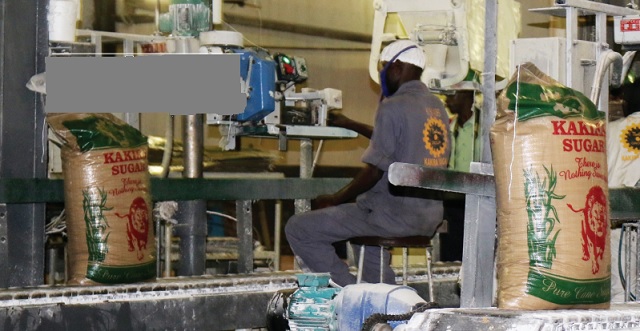
Petty rivalries blamed for endless regional trade disputes
Kampala, Uganda | RONALD MUSOKE | East African Community economies might be growing at an unprecedented rate but experts say emerging nationalism and protectionism policies could hurt integration in the long run.
Uganda, Kenya and Tanzania are currently locked in several trade disputes and experts are worried that unless the emerging trends are checked, these disagreements could have negative implications in and beyond the regional bloc’s borders.
In 2010, the five East African Community partner states signed a comprehensive Common Market Protocol, officially binding member states to open up their borders for free movement of goods, labour and capital across the region.
But, partner states have accused and counter-accused one another of flouting the rules spelt out in the protocol over the years.
The latest incident happened on Nov.19 as Ugandan dealers in agricultural produce ran out of patience and staged a demonstration at the southern border post of Mutukula citing unfair treatment by Tanzanian customs officials who for months have denied them opportunity to ferry and sell tonnes of beans and maize in Tanzania.
It was ironic that the demonstrations were taking place at Mutukula where just 12 months ago, President Yoweri Museveni and his Tanzanian counterpart, John Pombe Magufuli, launched a magnificent one stop border post complex— one of 15 facilities built to ease trade across borders in the EAC region.
The demonstration only fed into what appears to be a hushed trade war brewing between Uganda and Tanzania, that regional observers say, is one of several disputes said to be eroding gains of the East African Community Common Market Protocol.
Disputes over sugar, carrots and chickens
In August, this year, Tanzania cracked the whip on sugar imports from Uganda, claiming the sugar had been sneaked into Uganda from Kenya.
The Tanzanian government imposed a 25% import duty on Ugandan made sugar, which the Ugandan government said was a violation of the Common Market Protocol and the EAC rules of origin.
At the same time, the cross-border trade wars between Kenya and Tanzania escalated when, Jerry Muro, a newly appointed Arumeru District Commissioner announced a blanket ban on Kenyan carrots in a bid to protect local producers from competition.
Muro reportedly said that he and all Tanzanian carrot farmers would stand along the Arusha-Moshi Highway to inspect all lorries to ensure middlemen do not import a single carrot from Kenya.
In the same month, Kenyans protested at the Namanga border post after milk traders were arrested and placed in custody by Tanzanian officials. And, in an apparent act of retaliation, Kenya announced on Sept.15 that it would stop importation of rice from Tanzania.
Prof. Adolph Mkendi, Tanzania’s Permanent Secretary in the Ministry of Foreign Affairs and International Cooperation told The Citizen newspaper that the Kenyan government had stopped the importation of rice from Tanzania over claims of standards and packaging.
Kenya also imposed new tariffs on Tanzanian products like flour after the neighbouring country ignored a deal that granted Kenyan-made confectioneries unrestricted entry into its market.
The trade disputes between Tanzania and Kenya, which are the biggest economies in the region, have also spilt into livestock and the tourism sectors.
‘Tourism sabotage’
In July, this year, Tanzania was forced to deny claims by Kenyan tour operators that it had deliberately started fires to delay the migration of wildebeest gathering to migrate from the Serengeti National Park to Kenya’s Masaai Mara National Park—one of the most spectacular events in the global tourism calendar.
The sight of wildebeest crossing the Mara River that straddles the border of both countries has been described as a wonder of the world and both countries earn millions from tourists watching the annual spectacle. Apparently, the annual migration was expected in mid-June when the fire exploded.
“They (Tanzania are starting the fires intentionally—may be with the hope that the tourists will stay longer in Tanzania,” Kenyan tour operator Frankras Karema told the BBC. Karema said the delayed crossing had disappointed tourists and could affect business next year.
But Tanzania said the fires are a common practice to allow fresh grass to grow. The Tanzanian tourism officials added that the longer rain season may also have led wildebeest to stay longer in the Serengeti.
In response, the Kenyan tour guides and drivers blocked their Tanzanian counterparts from entering the Masaai Mara Game Reserve, arguing that the Tanzanians had also stopped them from gaining access to the Serengeti National Park.
Meanwhile, in November, 2017, Kenyan authorities were left furious after Tanzanian police intercepted and burnt 6,400 one-day old chicks from Kenya at Namanga border post, on suspicion that they could spread bird flu.
Earlier in the year, Tanzanian authorities had also seized and auctioned 1,300 cattle belonging to Masaai herdsmen from Kenya. The cattle had strayed across the border to graze in a region where herdsmen rarely pay attention to territorial frontiers.
 The Independent Uganda: You get the Truth we Pay the Price
The Independent Uganda: You get the Truth we Pay the Price



